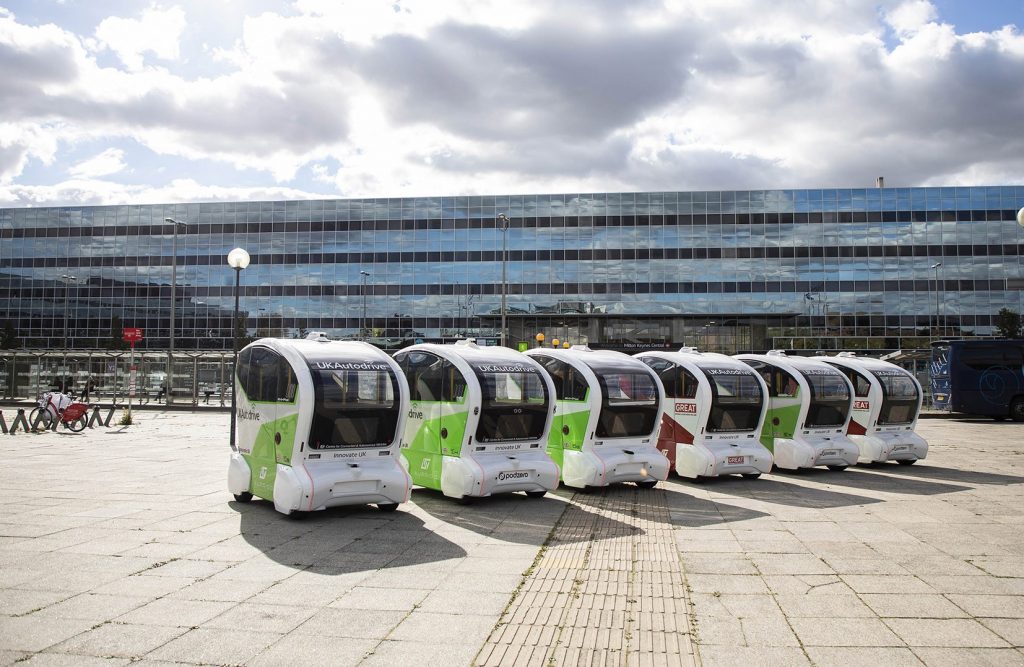
UK roads could see self-driving vehicles rolled out by 2025 thanks to new government plans that prioritize safety through new laws and create thousands of new jobs. Some vehicles, including cars, buses, and trucks, with self-driving features, could be operating on motorways in the next year.
“The benefits of self-driving vehicles have the potential to be huge,” said Grant Shapps, the UK’s Secretary of State for Transport. “Not only can they improve people’s access to education and other vital services, but the industry itself can create tens of thousands of job opportunities throughout the country. Most importantly, they’re expected to make our roads safer by reducing the dangers of driver error in road collisions.
Plans announced today set out new legislation that will allow for the safe wider rollout of self-driving vehicles by 2025. This enables the UK to take full advantage of the emerging market of self-driving vehicles, which it says could create up to 38,000 jobs and could be worth an estimated £42 billion.
“We want the UK to be at the forefront of developing and using this fantastic technology, and that is why we are investing millions in vital research into the safety and setting the legislation to ensure we gain the full benefits that this technology promises,” added Shapps.
The UK government’s vision for self-driving vehicles, which was outlined in a policy paper from the Centre for Connected and Autonomous Vehicles, is backed by a total of £100 million.
About £34 million of that is for research to support safety developments and inform more detailed legislation. This could include researching the performance of self-driving cars in poor weather conditions and how they interact with pedestrians, other vehicles, and cyclists.
Another £20 million of that is to help kick-start commercial self-driving services and enable businesses to grow and create jobs in the UK, following an existing £40 million investment. Examples include projects that could help see groceries delivered to customers by self-driving vehicles or shuttle pods assisting passengers when moving through airports.
In addition, £6 million will also be used for further market research and to support the commercialization of the technology.
“Self-driving vehicles have the potential to revolutionize people’s lives, particularly by helping those who have mobility issues or rely on public transport to access the jobs, local shops, and vital services we all depend on,” said Kwasi Kwarteng, the UK’s Secretary of State for Business, Energy and Industrial Strategy. “This funding will help unlock the incredible potential of this industry, attracting investment, developing the UK’s growing self-driving vehicle supply chain, and supporting high-skill jobs as these new means of transport are rolled out.”
The UK government says that self-driving vehicles could revolutionize public transport and passenger travel, especially for those who don’t drive, better connect rural communities, and reduce road collisions caused by human error. Further in the future, they could provide tailored on-demand links from rural towns and villages to existing public transport options nearby. They could enable more direct and timely services that enable people to better access vital services such as schools and medical appointments.
Vehicles that can drive themselves on motorways could be available to purchase within the next year, for which users would need a valid driving license so they can drive on other roads. Other self-driving vehicles used for public transport or delivery, expected on the roads by 2025, would not need anyone onboard with a driving license because they would be able to drive themselves for the whole journey.
What may be more significant is that the UK government is also seeking input until October 14 on how self-driving vehicles can be as safe as a competent and careful human driver. This “safety ambition” would inform standards that vehicles need to meet to be allowed to “self-drive” on roads, and organizations such as manufacturers could face sanctions if standards are not met.
The timing of the new laws for the safe rollout of self-driving vehicles by 2025 will depend on parliamentary deliberations. What’s fairly certain is that the legislation, which will build on existing laws, will state that manufacturers are responsible for the vehicle’s actions when self-driving, meaning a human driver would not be liable for incidents related to driving while the vehicle is in control of driving.
“The automotive world is changing rapidly and so the government is right to embrace the positive changes offered by this new technology and back it by funding research and putting forward legislation,” said Edmund King, President of the Automobile Association. “Assisted driving systems, for example, autonomous emergency braking and adaptive cruise control, are already helping millions of drivers stay safe on the roads. It is still quite a big leap from assisted driving, where the driver is still in control, to self-driving, where the car takes control.”
He said that it is important that the government does study how these vehicles would interact with other road users on different roads and under changing weather conditions.
“However the ultimate prize, in terms of saving thousands of lives and improving the mobility of the elderly and the less mobile, is well worth pursuing,” said King.
Today also sees the publication of the Responsible Innovation in Self-Driving Vehicles report from the Centre for Data Ethics and Innovation, which sets out proposals for a trustworthy approach to the regulation and governance of self-driving vehicles.
The CDEI says that the flexible, pro-innovation approach taken in this report furthers the government’s approach to the regulation of AI and its intent to establish “the most trusted and pro-innovation system for AI governance in the world.” It also supports the CDEI’s program of work on AI assurance, which seeks to achieve “effective, pro-innovation governance of AI.”

